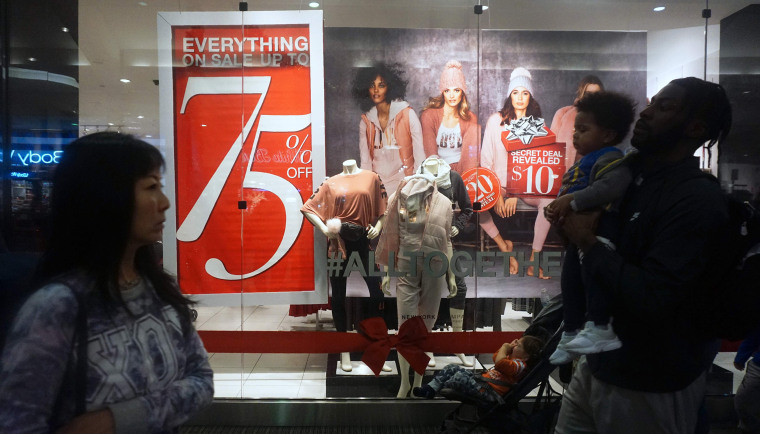It’s the most wonderful time of the year — but all this wonder and splendor comes at a price. With many Americans taking on part-time retail work at this time of year to boost their income, does working nights and weekends really net moonlighters enough? Ancillary expenses like wardrobe, commuting and overusing an employee discount can leave some retail workers with barely any net take-home pay.
With unemployment at a 50-year low, companies are offering especially generous employee discounts this year — making this season more tempting than ever before.
According to a recent survey by comparison platform datafinder.com, 66 percent of Americans are actively seeking additional income. That’s an estimated 162 million Americans looking to boost their pay packet. According to the findings, 13 percent of respondents want a second job to make ends meet. The holiday season is one of the most popular times to take on a second job.
Retail jobs during the holidays provide flexibility, extra money, and often the chance for workers to “mix it up,” offering the variety and customer contact their regular jobs may lack, said Denise Rousseau, professor of organizational behavior and public policy at Carnegie Mellon University’s Heinz College.
The fact that the work comes at a time when more money might be especially beneficial is of course a big plus. “Holiday jobs can permit people with an artistic bent to use those skills, from wrapping gifts to catering and arranging displays. Holiday jobs might offer more variety and flexibility than is typical of other seasonal or short-term work,” she said.
Unless you have a generous employer, you will likely be making minimum wage for a part-time retail position, said Natalie Briney, a fashion merchandiser based in Nashville, Tennessee, where retail workers are generally paid $7.25 an hour. However, bigger cities such as Los Angeles can pay at least $12 an hour, depending on the size of the employer.
That hourly rate can be chipped away by expenses associated with that second job, she said. “By the time the employee pays for gas to commute to and from work and parking, a typical four-hour shift could be a complete wash, so you will see employees asking to work a full eight-hour day to make it worth their while,” said Briney.
A little research can help: “Certain parking garages in major cities charge hefty daily rates. Quite often, mall parking garages will offer a discounted monthly pass with in/out privileges for mall employees,” she said.
Alex Tran, a full-time marketing strategist, has worked a second seasonal retail job at Nordstrom in Seattle for the last four years. She works work one weeknight and both weekend days from mid-November to mid-January.
While Tran admits “the holiday vibe is very fun,” she's also doing it "for the discounts and extra cash" — though she acknowledges she spends about 25 percent of her pay on job-related expenses and spending because of her discount.
Employers don’t often require a dress code of only their product — and if they do, they will typically give you product to wear or an affordable discount on their merchandise, said Briney. “Some require a specific color or print, and hopefully you can find that already in your closet,” she said. Additionally, there can be strict guidelines related to hair, make-up, or footwear — and adhering to these guidelines can also be costly.
Working in a retail environment has its temptations on your wallet — being exposed to the latest trends, and being the first to shop new arrivals and sales. Workers may also want to buy presents, especially with discounts.
“It can be hard to resist spending your paycheck, especially when you want to look the part,” said Briney.
Holiday shoppers have always turned to seasonal jobs as a way to reduce gift-giving costs, but this year the gains for workers go far beyond just a few dollars saved. “Facing an industry-wide worker shortage, companies have had to come up with new, creative ways to attract seasonal hires,” says ZipRecruiter labor economist Julia Pollak “In addition to offering generous employee discounts, they're paying higher wages and making it easier for seasonal workers to transition into long-term positions.”
Also, the holiday season can be a win-win for less experienced or older candidates. “In fact, we're seeing large increases in the number of postings on ZipRecruiter that explicitly appeal to retirees, that welcome candidates with no prior experience, that offer paid training, and that offer flexible schedules,” Pollak tells NBC News. “Retailers overall are empowering workers to maximize their seasonal gains, with Target and Macy's even giving workers the ability to pick up additional hours and earn bonuses. If you’ve ever considered taking a seasonal job, this is the year to do it.”
